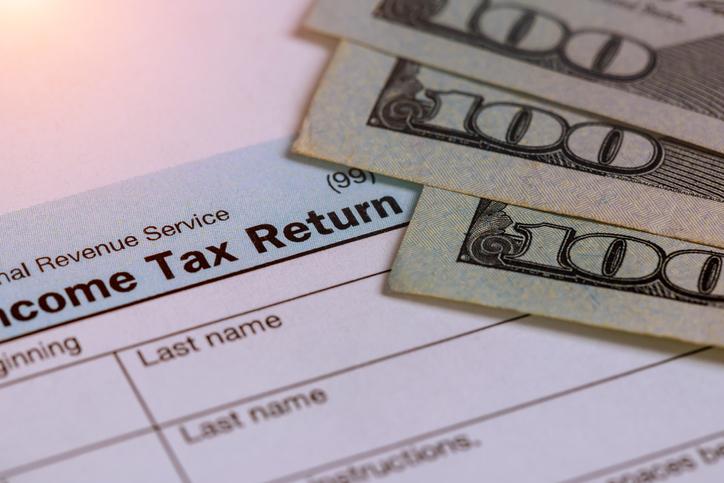What Are Back Taxes and What You Need to Know to Get Rid of Them
If you owe back taxes, you want to know how to pay and get rid of them, and whether they can be forgiven by the IRS. Read on for helpful answers.
Feb. 14 2023, Updated 10:36 a.m. ET

Do You Owe Back Taxes?
If you were recently notified that you owe back taxes, you probably have a few questions like, what are back taxes? What happens when you have back taxes? And how do you calculate the amount you owe?
Back taxes refer to taxes due from a previous year that were not completely paid by the deadline. Whether they were due on a local, state, or federal level, these fully or partially unpaid taxes from that year remain outstanding and must be paid. The taxpayer will also need to pay back taxes on the additional penalties and interest fees that accumulate on these unpaid back taxes.
Why do I owe back taxes?
There are many reasons why someone would owe back taxes, and this may include avoiding or forgetting to file a return, filing a return but not paying the amount owed, not reporting all of their income, or not having enough money withheld from paychecks throughout the year (which can include gambling winnings, freelancers, contractors and those who receive part of their wages in tips).
Even if it's a mistake or oversight, you'll still owe the IRS a payment for the back taxes unpaid on taxable income. If you don't pay them back, the amount will keep increasing due to the fees and interest, and they may withhold your future tax refunds to pay off your debt.
If your payments become seriously delinquent, they can garnish your wages, seize your property, and in extreme circumstances, they may even throw you in jail for tax evasion.

IRS Headquarters in Washington, DC
How do I get rid of back taxes?
The short answer is to pay your back taxes. But if that’s not possible at the moment, contact the IRS to set up a payment plan that’ll fit your budget. The IRS offers two different options.
The first is a short-term payment plan that lets you pay back taxes within 180 days without charging an additional application or setup fee. If you owe a total of $100,000 or less, the IRS will withdraw payments directly from your checking or savings account, E-Pay online or by phone, or via check, debit/credit card, or money order.
Your second option is a long-term payment plan (if you owe $50,000 or less), and you’ll be charged a setup fee that ranges from $31 up to $225 depending on how you apply and repay your debt.

Tax time - Closeup of U.S. 1040 tax return with 100 bills pay tax
Can back taxes be forgiven by the IRS?
If you're interested in getting your back taxes forgiven by the IRS, check if you're eligible to apply for an Offer in Compromise, which is an agreement between you and the IRS to settle the debt for less than the total amount owed.
Or if you're going through severe financial hardship, you can make your status Currently-not-Collectible which delays payments after you've proven your finances are as bad as you claim.
But in the end, you'll still be responsible for paying your back taxes. And remember that late fees and penalties will continue to accrue until you pay off your back taxes in full.
